Ronnie Spector Interview: ‘Be My Baby’ and Her Biggest Influence
by Dennis ElsasThe lead singer of the 1963 smash, “Be My Baby,” was born Veronica Bennett into a multi-racial family in New York City on August 10, 1943. In her teens, she formed the Ronettes with her older sister, Estelle, and her cousin, Nedra Talley. Phil Spector signed them to his own label in 1963 and they soon released several hits including “Baby, I Love You,” “Walking in the Rain,” and the biggest, “Be My Baby.”
Though they had numerous singles, they only put out one album, in late 1964. Ronnie married Phil Spector in 1968. They adopted three children before divorcing in 1974.
Ronnie Spector died on January 12, 2022, at age 78. In 2010, while in New York to plan a new show, she visited legendary disc jockey Dennis Elsas.
Elsas is, as many Best Classic Bands readers know, one of the most respected album rock air personalities in the nation. From a quarter-century-plus stint as a DJ and music director at WNEW-FM to his endeavors today as afternoon drive host at the esteemed WFUV and as co-host of the weekly Beatles talk and “call-in” show, “Fab Fourum,” heard exclusively on the Beatles Sirius/XM Channel (18) plus weekend shifts on Sirius/XM’s Classic Vinyl Channel (26), he has earned the regard of listeners and artists alike. Dennis occasionally presents his Rock ‘n’ Roll Never Forgets live multimedia show, a real treat that greater New York metro area rock fans should not miss. He celebrated his 50th anniversary on New York radio in 2021.
In this Ronnie Spector interview, Elsas talked to her about the singer who inspired her career and those early years.
Dennis Elsas: It’s Frankie Lymon’s voice that inspired you.
Ronnie Spector: If it wasn’t for Frankie Lymon, I wouldn’t be here with you, Dennis. I lived on 151st between Amsterdam and Broadway, and he lived at 165th. I first heard “Why Do Fools Fall in Love” and I said, “I love that voice. I love that song.” I didn’t know if he was Black or White, boy or girl, because he had a high voice. But I knew that’s what I wanted to do. I went home to my mother and father and said “You’ve gotta send me for vocal lessons.” But they said “We can’t afford that.”
So I never went to piano lessons or singing lessons. But I would come home from school and I would put on Frankie Lymon, the Students, the Schoolboys. Those voices are how I learned how to sing.
DE: Take us from 14 years old, hanging out with Frankie Lymon, being influenced by Doo Wop. How do you and the other ladies become the Ronettes?
RS: We stayed at my grandparents’ apartment after school. I had all these first cousins. That’s how we formed the Ronettes. There were five girls. My two first cousins, Diane and Elaine… their parents didn’t want them to sing rock and roll so that’s how we had [just] the three Ronettes.
The Teenagers were half-Spanish, some of them were Black. I said, “We can do this, girls.” Because I’m mixed blood. If Frankie Lymon has Spanish guys in his group, why can’t we? Because one of the Ronettes was half-Spanish, I’m half-Irish and Cherokee Indian. I knew at 11 years old that I could sing because I went downstairs in the lobby and I heard this great echo coming out of my voice. That’s when I said, “I can record, I can do everything. I can be just like Frankie Lymon, but a girl.” And I had the Ronettes as my backup, just like the Teenagers.
DE: The first time that I heard the Ronettes was as part of Murray the K’s Dancing Girls. One of the great rock and roll disc jockeys of all-time. Murray had all kinds of schtick, he was kind of like a carnival barker. I would hear him say, “Hello, Girls!”
RS: We had all this schtick. We used to go from school, right to WINS. At the time, we didn’t have the name, the Ronettes. So he would just call us his beautiful dancing girls. We’d come on stage at the Brooklyn Fox. We sang and danced. Because no one else did that. We wore tight dresses where everyone else wore flared dresses. We had slits up to here. And big hair. It was something no one had ever seen. (laughs)
[Elsas shows her his program from the Murray the K Christmas Revue from December 1962. It included Jackie Wilson, the Shirelles, the Four Seasons, Sam and Dave, the Dovells, the Ronettes, Little Eva, Dionne Warwick, and more.]
DE: It was the first rock ’n’ roll show I ever saw. How many shows a day did the artists have to do?
RS: At least five. We stayed there from 12 o’clock until at least nine. I remember Jackie Wilson on stage. The women loved him. He was sweating! When we would back him up, we would sort of move to the side and let him take his bow. Because he knew he would get us all wet.
Watch the Ronettes on American Bandstand in 1963
Before we had hit records, we were so happy doing this with Murray. He sort of brought us out and then we met Phil Spector, and the rest is history.
DE: When you were making those records, did you have any sense in the midst of it all, what it was going to sound like on the radio?
RS: No. Because once my voice was on, it was the final thing. Once Phil got all the music down, I [would] come in and record after everybody was gone. I never saw people. I remember once, [session drummer] Earl Palmer said, “Ronnie, you could be the next Billie Holiday.” Everybody had this thing about my voice that I didn’t really get. Because I was in the studio all the time. And I just did what I was told.
I used to have to go to [Phil’s] penthouse, because he had a piano, to learn the songs. One day, Jeff [Barry] and Ellie [Greenwich] were coming up. He said, “Go into the guest room because I don’t want them to see you.” I’m listening to them and Ellie kicking ass on the piano. And they said, “It’s perfect for her. Because she’s like a child. She’s like a baby. Put that down. Be my baby.” And she said, “Phil, you like her, right?” And he said, “I love her!” Be my little baby! Everything from that day came from my actions and my voice and the love Phil had for me.
There’s plenty more where that came from. Listen to Elsas’ entire Ronnie Spector interview here.
Ronnie Spector’s recordings are available here. Her books are available here.

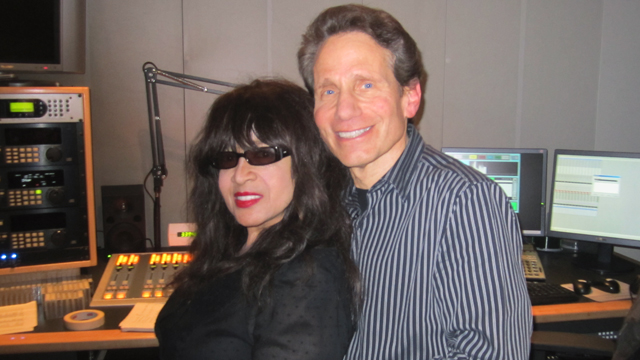
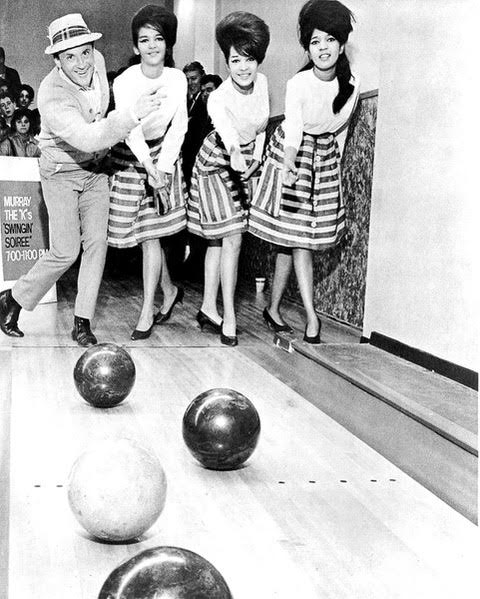
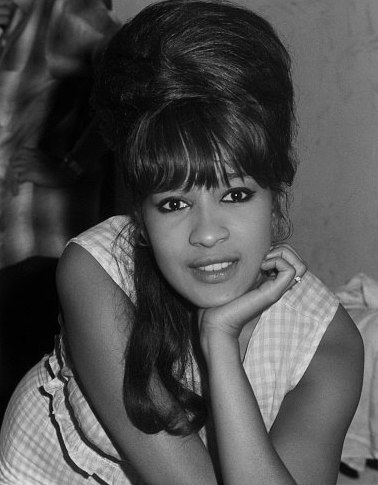
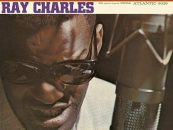
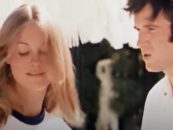
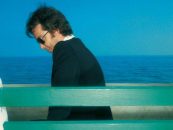


2 Comments so far
Jump into a conversationI have never seen singers look so happy and pleased when performing on stage as Ronnie Spector and the Ronettes! I had the pleasure of seeing Ronnie perform once in NYC. Her music will live on as her legacy! R.I.P.
I really enjoy the “You Say You Want a Revolution” drop-ins on the Sirius/XM Beatles Channel.